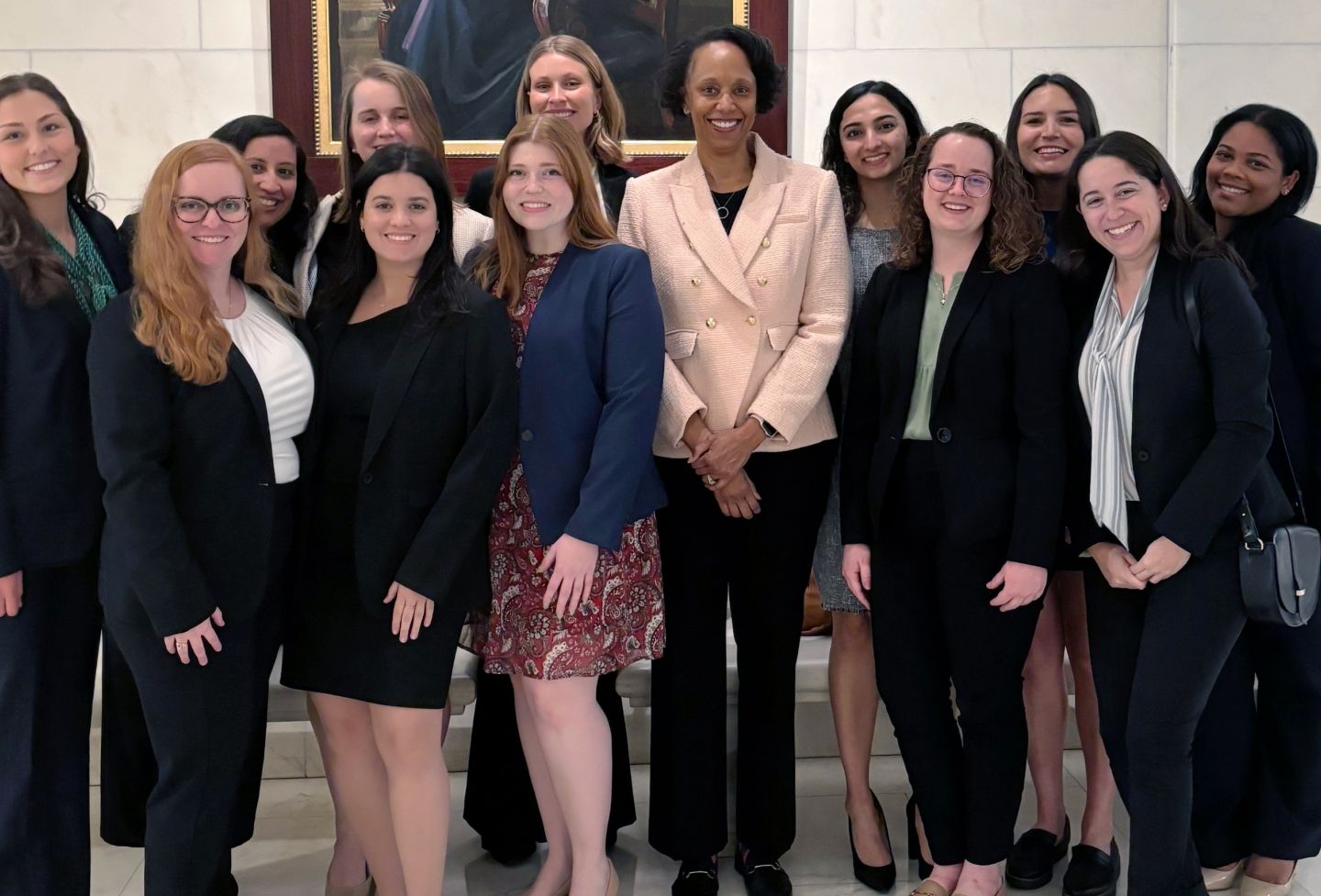Wrongly convicted people in Virginia now have a much better shot at overturning their convictions because of the policy efforts of the Innocence Project at the University of Virginia School of Law.
As part of sweeping criminal justice reforms signed by Gov. Ralph Northam over the weekend, the threshold for the Virginia Court of Appeals to grant a writ of actual innocence has been lowered in cases not involving biological evidence.
“It’s a new day in Virginia,” said Professor Jennifer Givens, one of the Innocence Project’s directors. “The changes make the remedy available to more innocent people in Virginia and will lower the current burden of proof, which is incredibly high and nearly impossible to satisfy.”
The Innocence Project’s policy focus began this academic year. The primary team, comprised of seven current students and overseen by Staff Attorney Juliet Hatchett ’15, advocated for amendments to the writ of actual innocence law that have now been incorporated.
“This type of work is something we’ve wanted to do for a long time,” Givens said. “Our team brainstormed the types of reforms we should be focusing on for this legislative session. We then worked with the New York Innocence Project and the Mid-Atlantic Innocence Project to establish a legislative agenda and plan, and Juliet and the policy team worked hard to implement that plan.”
The change in law effectively puts the remedy within reach. As an appeals court considers how a reasonable set of jurors might determine guilt based on the new evidence, the standard now requires relief based on a “preponderance of the evidence,” versus the previous, higher bar of “clear and convincing evidence.”
The law also changed to allow a convicted person who previously pled guilty to petition for a writ.
“More than 95 percent of people plead guilty to a crime, but pleading guilty doesn’t necessarily mean a person isn’t innocent,” Hatchett said.
And the new law allows for more than one writ petition if the first isn’t successful, although significant new evidence must still be introduced each time.
To date, only four people in Virginia have been granted a writ of actual innocence based on nonbiological evidence, Hatchett said. The new law goes into effect July 1.
Virginia has a separate statute that pertains to the filing of a writ of actual innocence in cases that hinge on biological evidence. For that law, the policy team proposed allowing DNA testing to be performed at private labs if the Virginia Department of Forensic Science does not possess the equipment or expertise. The bill passed both the House of Delegates and state Senate unanimously. The governor has suggested an edit to its language, and the Innocence Project is optimistic that it will soon become law as well, Hatchett said.
Jessica Joyce, a third-year law student who was team leader for the students working on the project, researched the law in other states and investigated which Virginia legislators might be interested in sponsoring. Sen. John Edwards, a 1970 graduate of the Law School, sponsored the writ of actual innocence legislation in the Senate (SB 511), while Del. Charniele Herring sponsored identical language in the House of Delegates (HB 974).
“The new writ of actual innocence law demonstrates that Virginia’s legislature is serious about trying to get things right in our state’s criminal justice system,” Joyce said. “The post-conviction DNA testing bill [SB 1071] will allow courts to consider more DNA evidence when reviewing the convictions of those who claim innocence. As a bill that was passed unanimously by both the Senate and the House, it is also a wonderful example of how criminal justice reform is a bipartisan issue and how all policymakers can strive toward a more just Virginia, regardless of political affiliation.”
Joyce also deserves credit for pushing to start a policy team, which she first advocated for as a student in the for-credit Innocence Project Clinic last year, Hatchett said. Students in the yearlong clinic investigate and litigate claims of false conviction in Virginia.
Hatchett, also an alum of the clinic, joined the Law School in the fall as part of a special fellowship. She guides the Innocence Project’s separate student pro bono efforts, including the new policy component. The Innocence Project is directed by Givens and Professor Deirdre Enright ’92.
Beginning in January, Givens and clinic client Darnell Phillips gave the fledgling policy effort a boost by providing testimony over several occasions to the General Assembly. Givens shared her legal expertise, while Phillips provided a human face to the problems; he was denied relief under the current actual innocence statutes, despite compelling evidence of his innocence. Phillips was paroled in 2018, but he has not been formally exonerated.
Northam had signaled in advance that he wanted to make major changes to criminal justice in Virginia, including to the writ of actual innocence process.
Related Stories
Founded in 1819, the University of Virginia School of Law is the second-oldest continuously operating law school in the nation. Consistently ranked among the top law schools, Virginia is a world-renowned training ground for distinguished lawyers and public servants, instilling in them a commitment to leadership, integrity and community service.


